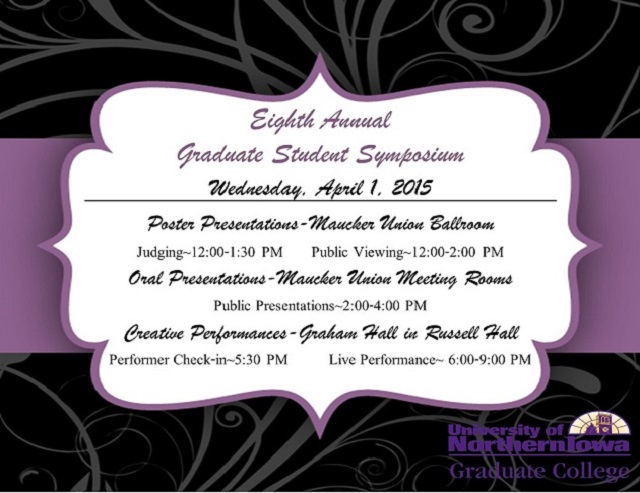
Complete Schedule
Presentation Type
Open Access Oral Presentation
Keywords
Stereotypes (Social psychology)--Iowa--Cedar Falls; Self-perception; College students--Iowa--Cedar Falls--Attitudes;
Abstract
Stereotype threat is the situation when people under the pressure of confirming a negative stereotype that applies to them. Research shows that when people try to suppress the thought of being threatened, they tend to perform even worse. This study examines the effect of suppression of stereotype threat on females’ confidence on a gender-based stereotypical task (about spatial skills and science knowledge) and cross—gender interaction outcome. Participants first completed the moon task and then had a discussion with a male confederate before evaluating the willingness of future interaction and the perception of how the confederate views them. We hypothesized that 1) participants who try to suppress the stereotype threat will be less confident than other participants; and 2) suppression will lead to a worse interaction indicated by a lower evaluation from both the confederates and the participants. But the results show that people in suppression condition showed a more positive rating on meta-perception of the confederates’ rating, which is contrary to our hypothesis.
Start Date
1-4-2015 2:00 PM
End Date
1-4-2015 4:00 PM
Faculty Advisor
Helen Harton
Department
Department of Psychology
Copyright
2015 - Zheng Li
File Format
application/pdf
Embargo Date
3-15-2015
Suppression of Stereotype Threat Negatively Impacts Self-Evaluations and Interpersonal Outcomes
Stereotype threat is the situation when people under the pressure of confirming a negative stereotype that applies to them. Research shows that when people try to suppress the thought of being threatened, they tend to perform even worse. This study examines the effect of suppression of stereotype threat on females’ confidence on a gender-based stereotypical task (about spatial skills and science knowledge) and cross—gender interaction outcome. Participants first completed the moon task and then had a discussion with a male confederate before evaluating the willingness of future interaction and the perception of how the confederate views them. We hypothesized that 1) participants who try to suppress the stereotype threat will be less confident than other participants; and 2) suppression will lead to a worse interaction indicated by a lower evaluation from both the confederates and the participants. But the results show that people in suppression condition showed a more positive rating on meta-perception of the confederates’ rating, which is contrary to our hypothesis.


